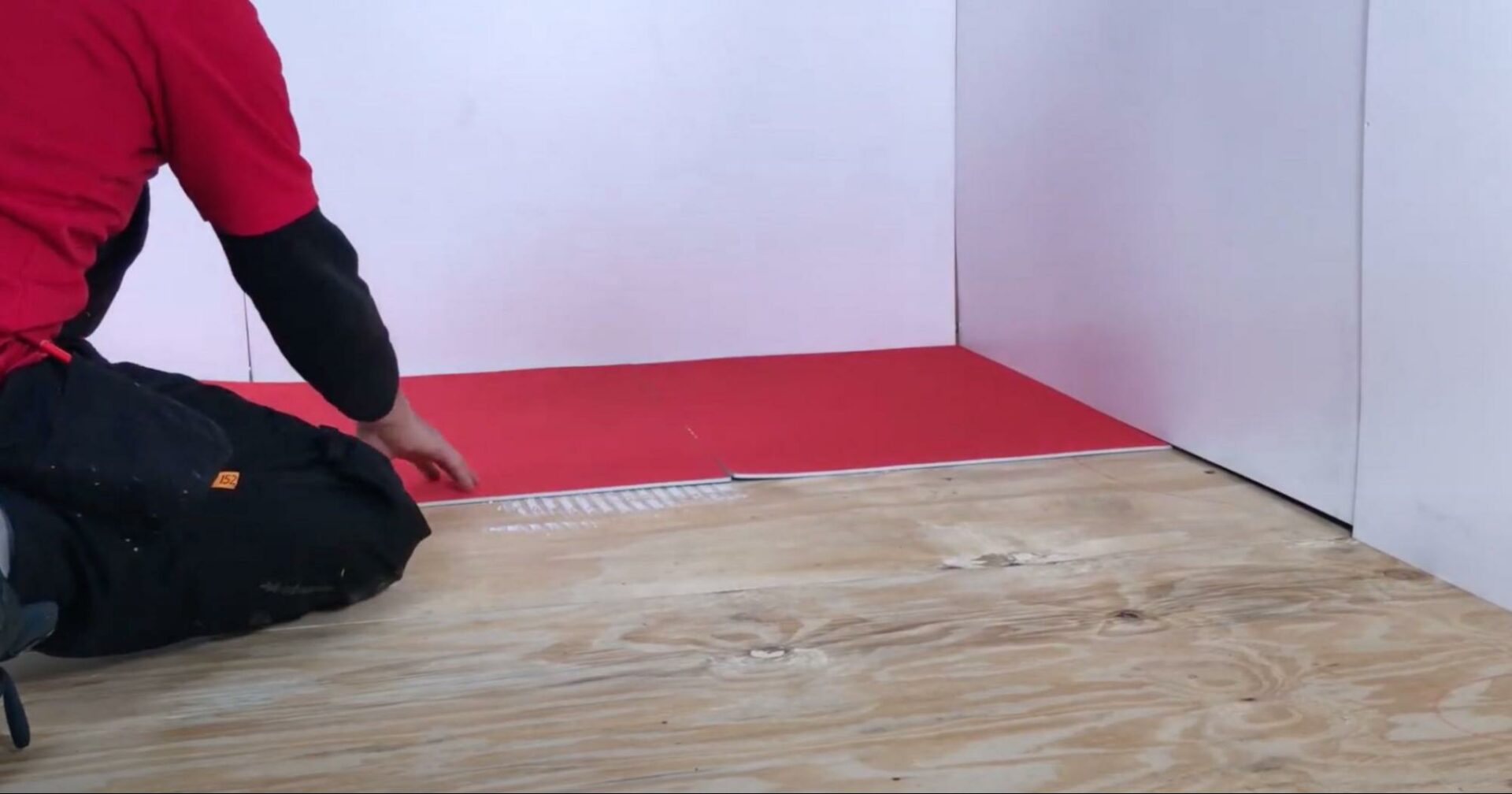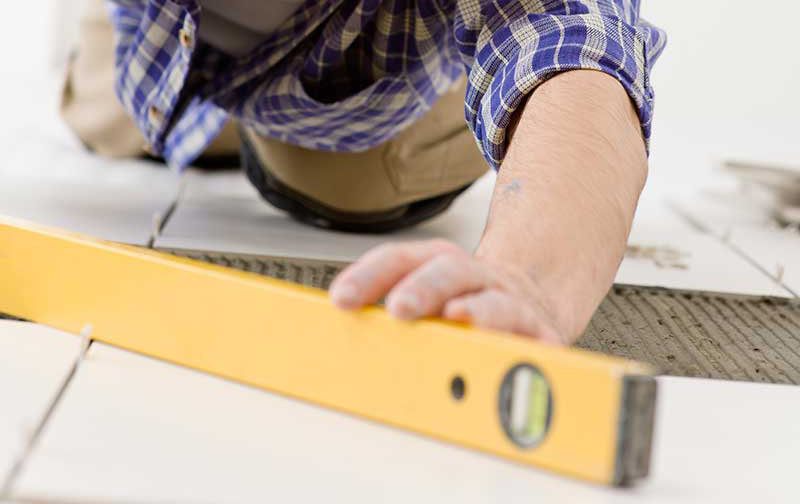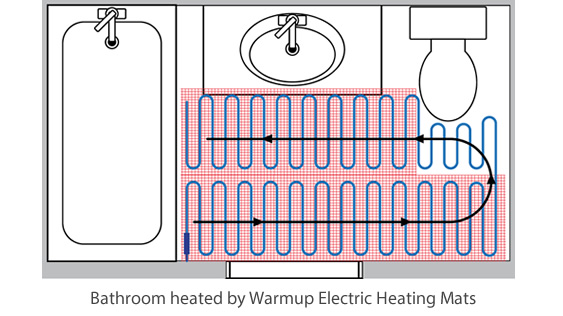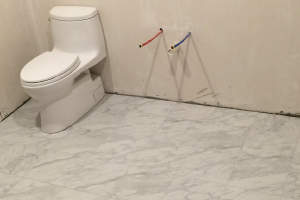Why would you want under slab insulation for radiant heat? Like most people, you are probably at least partially interested in radiant floor heating because of the energy efficiency and significant cost savings it can yield.
While already substantially more efficient than baseboard or forced air heat, you can maximize your radiant heating system’s efficiency by using under slab insulation and over slab insulation. Smart thermostats and high R-value insulation can also help reduce energy use and heating bills.
Why Radiant Heating Systems Need Proper Insulation
When you turn on your radiant heat, you want it to heat the floor that sits on top of it, not the concrete slab beneath it or the ceiling in the room below.
Concrete, in particular, has inferior insulative properties and is a very proficient conductor of heat. A typical concrete slab has an R-value of between 0.5 and 1.5, similar to a single pane of glass. Because of these factors, a concrete slab will suck radiant floor heat down, and will make your heating system considerably less efficient.
The Best Materials for Under Slab Insulation
Expanded Polystyrene
Expanded Polystyrene, commonly referred to as EPS, is what you would most likely recognize as Styrofoam and is often used for under slab insulation.
EPS comes in various sizes and compressive strengths and has a meager water absorption rate, which makes it an excellent option for under slab insulation.
Expanded Polystyrene has an R-value of about 3.6 per inch and can maintain its R-value over an extended period.
Extruded Polystyrene
You may have seen Extruded Polystyrene, or XPS, in big box home improvement stores. XPS is typically pink or blue and comes in 4’x8′ sheets in various thicknesses.
Extruded Polystyrene has a superior R-value, around 4.7 per inch, but its insulative properties diminish over time.
Extruded Polystyrene’s diminishing R-value can be concerning, however it has a lower absorption rate than EPS, which makes it a popular choice for under slab insulation.
How to Install Under Slab Insulation
Under slab insulation is a great way to increase a home’s energy efficiency, but you must install it before you build your home.
Under slab insulation must be installed underneath the concrete slab that your house is built on, hence the name. To do this, you need to line the prepped and graded gravel area (where your slab will be poured) with some form of insulation, usually either XPS or EPS. Once the insulation is down, it is time to pour concrete.
Under slab insulation cannot be retrofitted or installed after you’ve built your house.
Supplemental Installations to Maximize Radiant Heating Effectiveness
What if it’s too late to install under slab insulation, but you still want to maximize the effectiveness of your home’s radiant heating? Are you out of luck? Absolutely not. Many products and techniques available to homeowners today can substantially increase the efficiency of your home.
Over Slab Insulation
Over slab insulation is one of the best ways to eliminate heat loss down through your concrete slab. Over slab insulation is a technique where a layer of insulation, typically EPS or XPS, is laid on top of the structural concrete slab. Two layers of ¾” plywood subfloor can then be installed on top of the insulation, followed by your choice of flooring.
Insulated Underlay
Insulated underlays, like Warmup’s 4-in-1 Ultralight™ insulation boards, are one of the easiest and most effective ways to increase the efficiency of your home’s radiant floor heating.
Easily installed when redoing a floor or adding radiant heating, 4-in-1 Ultralight™ insulation boards;
- Insulate – to prevent heat loss through the floor
- Spread heat – to provide a more evenly warmed living space
- Decouple – to protect tile floors from expanding and contracting subfloors
- Acoustic – rated for its acoustic performance by Intertek Building & Construction
This comprehensive video details the process of installing Warmup Insulation Boards for your underfloor heating:
Radiant-Friendly Flooring
With proper accommodations, you can lay almost all types of flooring over radiant heat, but some varieties will be more conducive to efficient heating than others.
For example, laying carpet over radiant floor heat is possible, but it has strong insulative properties and is not a good conductor of heat. Therefore, it will take more energy to heat a space to the desired temperature when you lay carpet over radiant heat.
Ceramic tile is the best flooring material to use in conjunction with radiant heat. Tile is a poor insulator but an excellent conductor of heat, and allows warmth to radiate through it with minimal energy expenditure.
High R-Value Home Insulation
Under slab insulation is not the only insulation you should be concerned about when it comes to keeping your home warm and efficient. Making sure that your walls and attic are packed with high R-value insulation will do wonders for keeping heat in and cold air out.
Ensuring that you fill any cracks, gaps, and holes with spray foam insulation will help ensure that your hard-earned dollars are spent heating your home, not the outdoors.
A Smart Thermostat System
The thermostat is the brain of your heating system. Installing a Smart thermostat is like sending your radiant heat system to get a Ph.D. at Harvard.
Products like the 6iE Smart WiFi Thermostat from Warmup use innovative features like SmartGeo technology to intuitively turn the heat down when you leave the house and back up when you are on your way home. No more money spent heating an empty home, and no more coming back to a cold house either!
Choose Warmup for Whole Home Radiant Efficiency
Warmup has been focused on providing energy-efficient heat for homes around the world for over 25 years. Using innovative technology like the MyHeating App and Advanced Early Start functionality, Warmup products can save you up to 25% on your energy bills. Want to take your home’s efficiency to the next level? Save up to $1 per square foot annually when you insulate with products like Warmup’s 4-in-1 Ultralight™ insulation boards.
Explore Warmup’s entire line of products or contact the customer service team today to find out why Warmup is the world’s best-selling floor heating brand™!





![Thumbnail [200x250]](/wp-content/uploads/Indoor-Systems-Page-Image.png)
![Thumbnail [200x250]](/wp-content/uploads/image-13.png)
![Thumbnail [200x250]](/wp-content/uploads/Projects-Image.png)